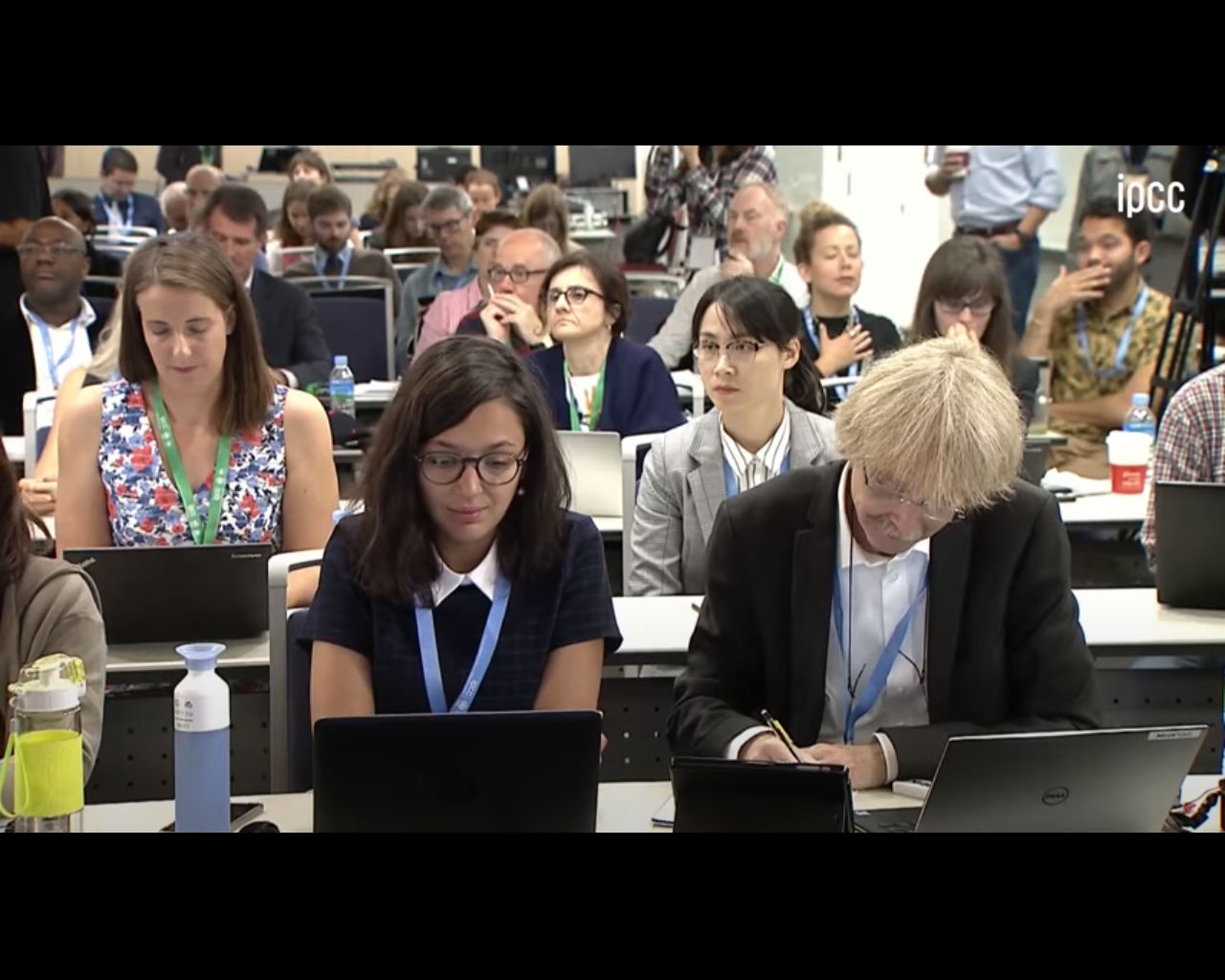The climate report that the IPCC presented last week dominated the news for days. Delta asked energy professor Blok and flood expert Kok what stood out in the report for them
‘All the newspapers and journals were covering it. I don't remember that from previous IPCC reports.’ (Photo: IPCC)
What struck Dr Matthijs Kok, Professor of Flood Risks at the Faculty of Civil Engineering and Geosciences, about the IPCC report published last week? The fact that the scenarios about climate change are so aptly confirmed. Think of rising temperatures, more frequent downpours, floods, and forest fires. “That in itself is not surprising because the scenarios are expectations about the consequences of temperature increase. But the fact that they seem to match up so well with what we see happening around us is a reason to really take these scenarios seriously.”
The global storms of recent times have strengthened interest in climate research, observes Prof. Kornelis Blok. He is Professor of Energy Systems at the Faculty of Technology, Policy and Management and IPCC author of Working Group III on climate change mitigation. He writes: ‘What strikes me most is the large amount of publicity surrounding the report. It was announced well in advance, all newspapers and journals paid attention to it and everyone referred to it throughout the week. I don’t remember that from previous reports.’ He also notices that the researchers speak ‘in more robust terms’ and are less reticent than in previous reports.
‘The Netherlands should anticipate an acceleration of the sea level rise’
As an example of this, Blok cited the performance of French climatologist and fellow IPCC Chair Valérie Masson-Delmotte during the press conference. In it, she clearly states that we must have a CO2 free economy in 2050 to stay within the 1.5 degree temperature increase.
Sea level rise and Russian natural gas
Unlike the scenarios for temperature rise, the predictions for sea level rise are less firm, according to Kok. “There is still much uncertainty about the speed at which the land ice on Greenland is melting. Off the Dutch coast, we have been measuring the same annual sea level rise of 2 millimetres for years, so 20 centimetres a century. We have not yet seen the announced acceleration to, say, 80 centimetres a century.”
He does believe, however, that the Netherlands should anticipate an acceleration of the sea level rise. “The Delta Commissioner could set up exploratory design studies into scenarios of one, two or three metre sea level rises,” Kok suggests. “What does that mean in concrete terms for the Rijnmond region and for the deployment of the Maeslant barrier? I often hear the response: ‘we still have plenty of time’. But the previous Delta Works also took 30 to 40 years to complete.” What decisions should the Netherlands take about flood safety, the Rotterdam harbour and ecology? These will be difficult discussions, Kok expects, but we must start them anyway.
‘Methane turns out to be an even stronger greenhouse gas than previously thought’
‘One thing that strikes me in the report is the relatively large role played by methane,’ Blok writes. The accompanying figure shows that methane plays a major role in the greenhouse effect, namely it accounts for about two thirds of the CO2 contribution. Methane appears to be an even stronger greenhouse gas than previously thought. That fact should make politicians think about our gas supply, Blok argues. “In the Netherlands we have, and had, a system with little methane leakage; this is not the case for natural gas from Russia.” Currently, 10% to 20% of the gas that the Netherlands consumes and trades comes from Russia. That percentage will rise in the coming years, a TNO expert told the TV news programme EenVandaag earlier this year.
TU Delft contribution
When asked whether TU Delft should or could do more in the fight against global warming, both professors referred to the TU Delft Climate Action Programme. This combines climate research with mitigation (combating climate change), adaptation (adapting to climate change) and climate policy. TU Delft intends to invest EUR 22 million in it over the next 10 years. ‘Under the banner of these four overarching themes, additional scientists will be recruited from mid-2021 to work on climate solutions in so-called flagship research programmes, including regional monitoring and modelling of climate change, climate engineering, negative emissions, circularity, tackling urban heat and water safety,’ the website states. “At TU Delft, about 1,000 researchers are already working on energy and climate research,” Blok adds.
‘An extra EUR 300 million per year for energy research’
In his capacity as Chairman of the NERA (Netherlands Energy Research Alliance), in a recent advisory report to ministries and the NWO, Blok argues not only for an extra EUR 300 million per year for energy research, but also for a different method of financing. Multi-year mission-driven innovation programmes (MMIPs) should support energy research, including research, pilots and demonstration projects, for the longer term (five to 10 years). Blok mentions green hydrogen, the built environment, offshore wind, and solar energy as subjects for large-scale research.
For most researchers affiliated to the Climate Action Programme, mitigating climate change is their main motivation, Blok says. Stable funding would help them realise their ambitions.
Do you have a question or comment about this article?
j.w.wassink@tudelft.nl


Comments are closed.